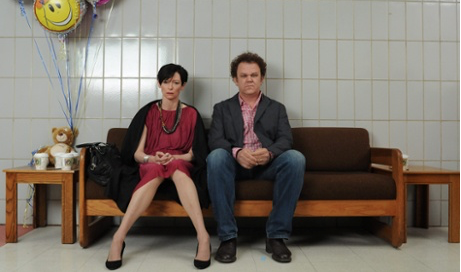How film can bring new life to a well-loved story
Dozens of movies this year will have started their lives as books, many of them of the young adult genre that is enjoying a heyday – if not always a payday – in Hollywood. If I Stay, Gayle Forman’s novel about a teenage cello player who, while in a coma, must decide whether to live or die, came to the big screen in a film starring Chloë Grace Moretz in the US earlier this summer. It’s a fitting, three-hankie bookend to one of the year’s most satisfying young adult hits, the teen-cancer drama The Fault In Our Stars.
Also in the US this summer, The Giver opened to heightened expectations that fans of Lois Lowry’s 1993 novel – a dystopian allegory about a futuristic society devoid of individuality – would reward the 20-year attempt to bring the book to the screen. But The Giver, which stars Jeff Bridges and Meryl Streep, underperformed at the box office, with some observers suggesting that what doomed it was a too-long gap between book and movie (in which time, similar-themed adaptations such as The Hunger Games and Divergent took the lead), as well as fans’ disappointment in the liberties the film took with the protagonist’s age and in the emphasis on a merely hinted-at love story. Still, for her part, Lowry pronounced herself well pleased with The Giver, saying she thought director Phillip Noyce brought the book “to a new level”.
As an author who is actually happy with how her work has been brought to the screen, Lowry is that rara avis of the book world, joining a lucky band of writers who have maintained a parental interest in their literary babies while mastering the Buddhist art of letting go.
As the Washington Post’s associate editor David Ignatius – whose spy thriller Body of Lies was adapted by Ridley Scott in 2008 – told me, “You have to accept that your book is going to be reimagined for the screen. In the process it becomes something different – loses some dimensions and gains others. But in Body of Lies, the director captured the basic points I wanted to make about America’s miscomprehension of the Arab world in the years after 9/11.”
(Ignatius’s latest CIA novel, The Director, is currently being adapted by filmmaker Paul Greengrass.)

But how often have we heard of an author feeling utterly betrayed by the filmmaking process, wailing that his or her characters, storylines and profound themes on the human condition were fatally distorted by the auteur’s heavy hand? From PL Travers sniping at Walt Disney’s wholesome maiming of Mary Poppins to Stephen King complaining that Stanley Kubrick’s version of The Shining failed to grasp “the sheer inhuman evil of the Overlook Hotel”, the dominant image of novelists embraced by Hollywood is of artists squeezed to within an inch of their lives, their creative juices drained – and, it should be noted, with plenty of $100 bills spilling out of their pockets.
Those entertaining complaints notwithstanding, Lowry and Ignatius may not be such rare birds after all; in fact, most writers seem to have struck a philosophical, if not resigned, attitude when Hollywood comes knocking.
Like their own fans, they have found a way to hang on to the original characters, storylines and details that they loved in the first place, while seeing a film as its own, discrete work of art – one that may take liberties with the original text but preserves its spirit and wider meaning. As the novelist Lionel Shriver told the British newspaper the Independent in 2012, speaking about Lynne Ramsay’s adaptation of We Need to Talk About Kevin, “I regard it now as a separate entity, not a perfect recapitulation of my novel.”
Besides, she continued, “it’s nice to be surprised by someone bringing something new to your material, rather than ploddingly putting your book on the screen. The nice thing, too, is that I have a plausible deniability; if the film sucked, it wouldn’t have been my fault.”
This article appeared in Guardian Weekly, which incorporates material from Le Monde
